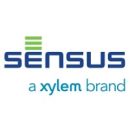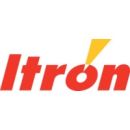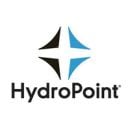The Internet of Things is seemingly everywhere these days, so it’s no surprise that IoT technology has been a huge boon for the sustainability sector — and, consequently, the environment.
IoT technology helps utility companies and other energy providers expand their services by linking up with countless decentralized devices and energy sources like solar panels and microgrids to reduce strain on conventional power sources. It benefits numerous industries by improving connectivity, reducing energy waste and allowing for the collection of energy data that can then be analyzed to enhance delivery and efficiency. In a more direct way for consumers, IoT means greater control of home energy use via smartphones or tablets. The result: greater sustainability and lower energy costs.
Sustainability Examples in IoT
The Internet of Things has tremendous benefits for the environment and sustainability technology. IoT can currently be found monitoring appliance usage in homes to controlling massive wind farms all over the world.
Here are ways the IoT in greentech benefits companies and individuals.
Examples of IoT in Environmental Sustainability
Location: Moline, Illinois
John Deere makes heavy machinery for family and industrial farming. With a dual focus on the physical and digital sides of contemporary farming, the company incorporates smart sensors and IoT devices into its equipment. This technology returns real-time insights on soil conditions, weather patterns and crop health.
Location: San Francisco, California
Samsara offers a suite of IoT products for customers operating fleets of vehicles across manufacturing, retail, transportation, warehousing, logistics, construction, field services and the public sector. Through its IoT solutions, Samsara helps companies monitor carbon emissions, track energy consumption and reduce the amount of fuel they use. For example, Samsara helps customers monitor pollutants by providing continuous, real-time visibility on data collected from environmental sensors. These alerts help customers shut down operations when dangerous levels of pollutants are detected to both protect workers and reduce negative environmental impact.
Location: Palo Alto, California
Google’s Nest contributes to the greentech sector through its programmable, Wi-Fi enabled, Energy Star certified thermostats that learn what temperature users prefer and builds a schedule around that setting. The company claims that since 2011, Nest Thermostat has saved billions of kilowatt hours of energy in millions of homes worldwide as well as delivering significant cost savings on heating and cooling.
Location: Sunnyvale, California
Through its sensor and analytics platform, Enlighted helps commercial buildings improve workplace comfort, reduce energy costs and enhance occupant comfort by offering smart lighting, demand-driven heating and cooling and data on employee movement that’s culled by the company’s advanced Sensor Network and used to optimize workspaces in a variety of ways.
Location: San Francisco, California
Wexus makes IoT software that helps the world’s food supply chain by letting users remotely connect to utility data to track a variety of things, from irrigation pumps and buildings to processing equipment and solar set-ups. If pumps need maintenance or repair, users are alerted. Energy and water data can be streamed via pump-installed hardware, irrigation schedules can be more tightly controlled and energy usage more carefully monitored for cost savings.
Location: Palo Alto, California
Industrial IoT is an integral part of Maana’s knowledge extraction process through which different data silos and information sources are mined and then analyzed to reveal intra-asset or intra-process relationships. Oil and gas companies are increasingly investing in sustainable analytics technology.
Location: Raleigh, North Carolina
Sensus provides IoT-enabled technology for utilities, cities and college campuses that improves measurement, control and analytics. That means new applications for smarter cities, safer gas usage with less pipeline loss, extended grid coverage, more efficient lighting and an optimized water cycle.
Location: London, England
CityMapper uses IoT connectivity for its car sharing service, which reduces traffic and is less harmful to the environment.
Location: Liberty Lake, Washington
IoT technology helps Itron measure, manage and analyze energy and water use via smart utility meters that collect, store and send data to smartphones and tablets, among other devices and destinations.
Location: Indianapolis, Indiana
Blue Pillar provides IoT power and energy management services that give companies more insight into their energy needs in order to enhance efficiency and better prepare for a potential grid outage. Industries include healthcare, educational institutions and local and federal governments, military and research labs.
Location: Boston, Massachusetts
Embue’s IoT technology creates smart apartment buildings that give residents and owners more control over equipment, environment and in-home experience. The company’s Embue Remote smartphone app, for example, lets residents control thermostats, sensors and leak detectors via smartphone. Analyzed IoT-collected data is used for predictive monitoring and real-time energy savings.
Location: Petaluma, California
HydroPoint uses IoT technology to provide smart water management for irrigation applications using sensor data analytics. Among its products: WeatherTRAK is a cloud-based irrigation controller that operates in real-time; HydroPoint 360° Smart Water Management installs beneath kitchen sinks. HydroPoint serves industries ranging from commercial real estate and hospitality to medical and retail, among others.
Location: Milpitas, California
Greenvity’s IoT-enabled focus is on smart LED lighting, controlled street lighting, home and building automation, IoT sensors, smart meters and automotive, all of which are more easily integrated via the company’s Powerline Communications Technology (PLC). Greenvity’s goal is to make “smart devices smarter” and the future greener.
Location: San Jose, California
Artveoli’s IoT Air Panel device, disguised as art, removes carbon dioxide and converts it into oxygen using photosynthetic algae cells. The result: fresher air, better health and more efficient building ventilation.
Location: San Francisco, California
Motive employs software and hardware experts to work on IoT solutions that help businesses monitor equipment location and vehicle fleets, as well as encourage safe driving. The company says it helps clients save on fuel and reduce environmental impact with fleet fuel management and AI-powered insights.


















